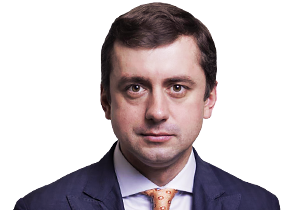Bring the violence under control so that to create space for reviving civil society. It was the aim of the visit of EU's chief diplomat Josep Borrell to Moscow. At least, it looked in such a way based on his goals.
However, Russian hospitality stunned him. Mr. Borrell probably didn’t know that hospitable in the Kremlin could be only a person who would talk about those things that concerned the Russians themselves. For example, the Sputnik V vaccine, the completion of Nord Stream 2 implementation, or how American citizens who captured the Capitol on January 6th are bad. In addition, it is possible to praise the Russians for their success in Syria and so on.
But when you raise the issue of the Crimea, Donbas, or human rights violation and Navalny’s arrest, be ready for a portion of thick slop pouring on your head. In fact, it is what the EU’s chief diplomat Josep Borrell felt. It was naïve to wait for Navalny’s pardon after Borrell’s meeting with Lavrov, but the Europeans have recently demonstrated their wishful thinking.
Under the global trend ‘let’s put up with the Russians’, the Europeans don’t see the main issue – the Kremlin will never strive for peace because the empire feeds only by conquering new territories. It is not a direct occupation; it is a mental one. The Russians’ task is Europe’s division and taking over its part that will advocate the pragmatic business interests. It is like Germany or Austria are in favor of launching Nord Stream 2. And in the background of the alternative energy sources development, Russian gas will definitely lose to the sun in the long run.
However, Mr. Borrell quickly recovered from the MEPs’ fierce criticism and backed up. Moreover, he talked about sanctions amid peaceful statements but the Russians are not interested in it to a large extend. They reached their goal – humiliated European diplomacy, which in 2014 severed practically all political and most of the investment ties with Russia because of the Crimea annexation and the Donbas occupation. Europe itself crawled on knees to the Kremlin for reconciling. We saw the first signals starting from the Russian delegation resumption in the PACE.
And some EU political leaders also visited the Kremlin before Borrell's visit; he said there were 19 of them. It is worth recalling the speech by Emmanuel Macron addressed to the diplomatic corps of the Republic dated August 27, 2019, where he declared the importance of a strategic partnership with Russia.
The criticism of Borrell’s “failed visit” and the desire to establish peaceful relations with Russia assuming that people are good while the power is in the devil’s hands, just indicate a policy of double EU standards. By the way, some MEPs have also started speaking about it.
And the realities just prove it. When it comes to values, The European Union starts expressing “concerns” and “condemnations.” However, when it comes to money and economics, the style and dynamics of the conversation are immediately changing. Profit for profit is the engine of the so-called normalization of relations with Russia. And Josep Borrell just became a scapegoat of hot political tailors who played for his resignation and their number was up to 11% (81 MEPs) against other 705 members of the European Parliament.
It only indicates that communication between the EU and Russia will be restored in the long run.
What should we do? I have written before – we have to build pragmatic trade and economic relations with the key EU countries, to develop an original approach. The way to success now is not through Brussels, but through Paris, Berlin, Rome, Madrid, Lisbon, and so on.
In addition to the economy, there are also security issues. These are regional alliances with neighboring countries, which are in NATO. All this is possible in the background of strong internal consolidation in Ukraine, professional and experienced elites in the Government, who will focus on Ukrainocentrism rather than on foreign capitals in the Western or Northeastern version. Nevertheless, this is possible only when we will understand our own strength and will be able to govern ourselves; that is when we will be a classical sovereign state.
Only in this case, we will not grab a sedative during the next meeting of European and Russian officials.
Taras Semeniuk is an analyst with Kyivstratpro


